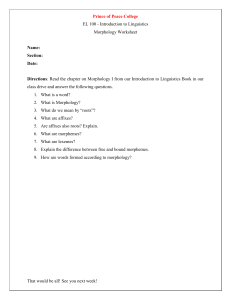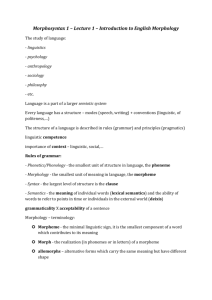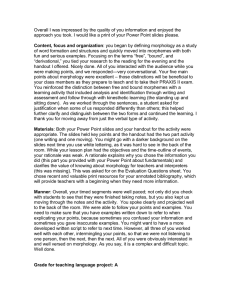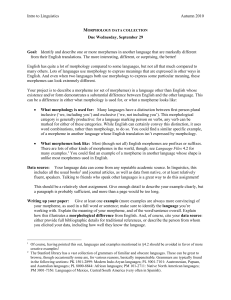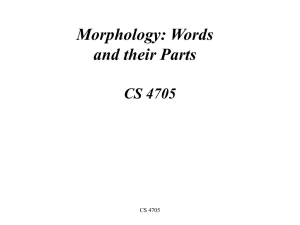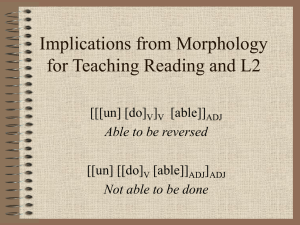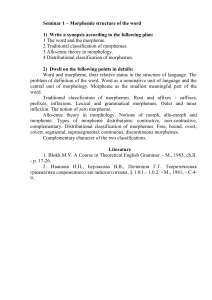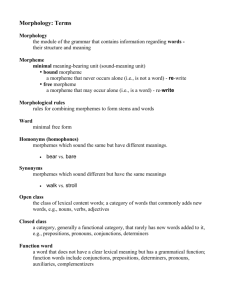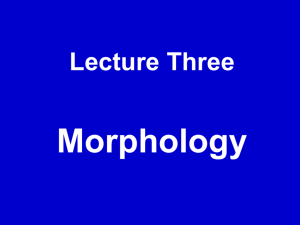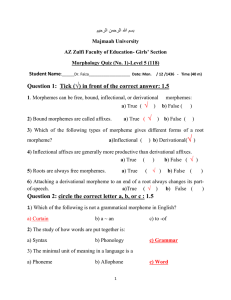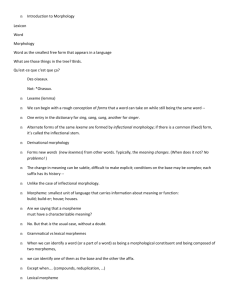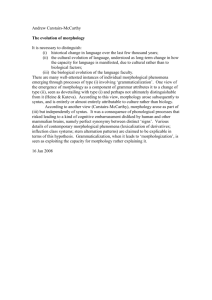423 English Morphology and Syntax
advertisement
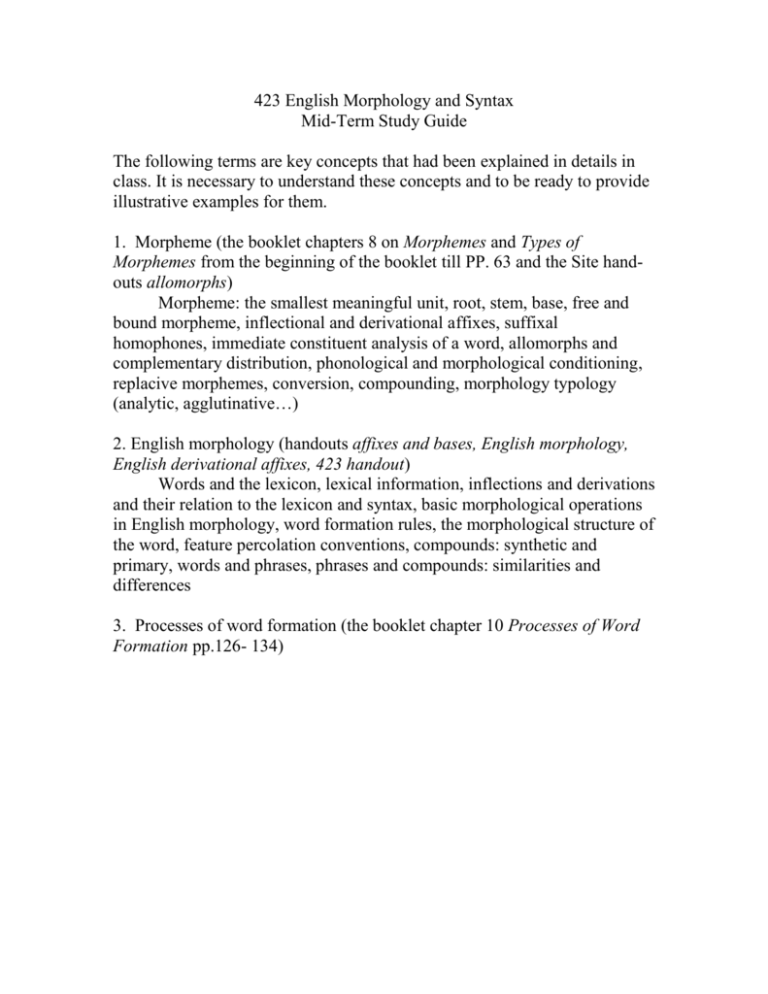
423 English Morphology and Syntax Mid-Term Study Guide The following terms are key concepts that had been explained in details in class. It is necessary to understand these concepts and to be ready to provide illustrative examples for them. 1. Morpheme (the booklet chapters 8 on Morphemes and Types of Morphemes from the beginning of the booklet till PP. 63 and the Site handouts allomorphs) Morpheme: the smallest meaningful unit, root, stem, base, free and bound morpheme, inflectional and derivational affixes, suffixal homophones, immediate constituent analysis of a word, allomorphs and complementary distribution, phonological and morphological conditioning, replacive morphemes, conversion, compounding, morphology typology (analytic, agglutinative…) 2. English morphology (handouts affixes and bases, English morphology, English derivational affixes, 423 handout) Words and the lexicon, lexical information, inflections and derivations and their relation to the lexicon and syntax, basic morphological operations in English morphology, word formation rules, the morphological structure of the word, feature percolation conventions, compounds: synthetic and primary, words and phrases, phrases and compounds: similarities and differences 3. Processes of word formation (the booklet chapter 10 Processes of Word Formation pp.126- 134)
